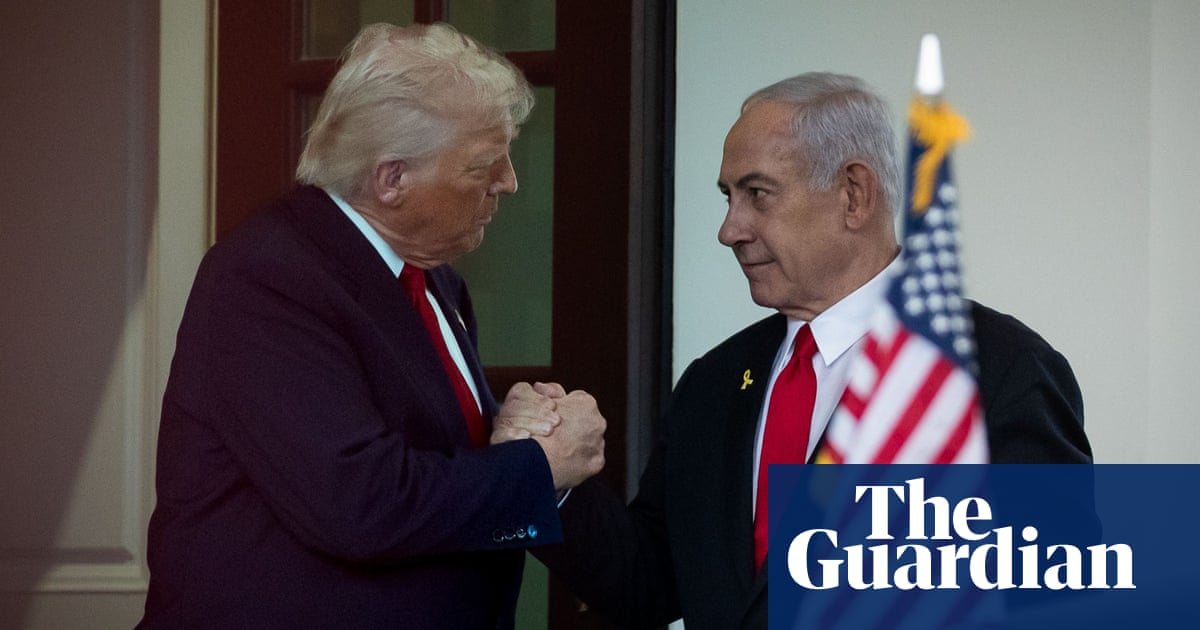The Shifting Sands of U.S.-Israel Relations Under Trump: The Iran Bombing Escalation
When Donald Trump ascended to the presidency, many observers wondered how his flamboyant style would reshape Washington’s long-standing diplomatic ties, particularly with Israel. Initially, there was speculation that Trump could craft a new dynamic with Prime Minister Benjamin Netanyahu, who had always managed to steer the U.S. toward supporting Israel’s ambitions. However, just over 150 days into his presidency, the narrative has dramatically shifted. It became evident that Trump may have fallen into the same traps as his predecessors, catalyzing a consequential military strike on Iran that could redefine geopolitical alliances and escalate tensions in the Middle East.
Early Days: The Trump Factor
In the days leading up to Trump’s inauguration, his envoy to the Middle East, Steve Witkoff, arrived in Israel with a bold agenda. Witkoff’s insistence on meeting Netanyahu during Shabbat — a day of rest and religious observance — was seen as a strong-arm tactic aimed at negotiating a ceasefire deal with Hamas in Gaza. Such moves encapsulated the so-called "Trump factor," a reference to his unpredictability and reputed deal-making prowess, which many believed could lend the U.S. leverage over the often-unyielding Israeli PM.
From Promise to Indirection
Despite initial hopes that Trump might curb Netanyahu’s military aspirations, recent developments suggest otherwise. Critics had expressed cautious optimism, pointing to a possible shift in U.S. policy that might resist Netanyahu’s typical maneuvers. However, those hopes have been dashed following U.S. military strikes against Iranian uranium enrichment sites, a response believed to be instigated by Israeli airstrikes that the U.S. was unable to prevent.
Drastic Shift in Policy
The week following Trump’s latest offensive saw a palpable change in tone and direction. Trump’s public persona, which often emphasized an aversion to new conflicts, began to dissolve. In a subsequent public appearance, he worked to dispel rumors of a strained relationship with Netanyahu, reinforcing the idea that U.S. actions were synchronized with Israel’s military strategies. "I want to thank and congratulate Prime Minister Bibi Netanyahu,” Trump stated, emphasizing their collaborative efforts against what he termed the “horrible threat to Israel.”
Endorsement of Military Action
The stark contrast between Trump’s earlier remarks and his subsequent actions became increasingly evident. Initially, Secretary of State Marco Rubio described Israeli airstrikes as "unilateral," underscoring that the U.S. did not want to be entangled in another offensive against Iran. Within just days, this narrative had radically shifted. The U.S. now appeared to not only endorse but actively participate in military strikes against Iranian targets, potentially setting the stage for a new cycle of conflict in the region.
The Risk of Escalation
What does this mean for the future? Trump has claimed—both publicly and in closed-door meetings—that the airstrikes on Iran’s enrichment facilities were intended as one-time operations. However, tensions are high, as U.S. forces in the region have been put on alert for possible retaliatory strikes from Tehran. Trump has warned Iran that the U.S. stands ready to execute further strikes should they become the target of aggression.
Cautionary Warnings from Within
Adding complexity to the situation, members of Trump’s own administration, including Vice President JD Vance, have raised alarms about how easily a limited strike could spiral into a broader war. This internal caution reflects the pervasive concern about how quickly military engagements could escalate in the already volatile region.
Netanyahu’s Reaction
Amidst all the turmoil, Netanyahu has publicly praised Trump’s military strategies. In a video statement, he expressed his gratitude, stating, “Congratulations, President Trump, your bold decision to target Iran’s nuclear facilities with the awesome and righteous might of the United States will change history.” This suggests that rather than diminishing Netanyahu’s military ambitions, Trump’s recent actions could embolden them, fundamentally altering the balance of power in the region.
Navigating a Complex Landscape
Currently, it appears Trump is attempting to walk a fine line, balancing the need to demonstrate military strength with the desire to avoid a full-blown conflict. This delicate approach adds layers of complexity to the already tumultuous landscape of U.S.-Israel relations and further complicates America’s role as a stabilizing force in the Middle East.
By examining these nuanced shifts in U.S. foreign policy and the relationship with Israel, it becomes clear that the implications of Trump’s presidency extend far beyond mere rhetoric, shaping the trajectories of international relations in significant ways.


